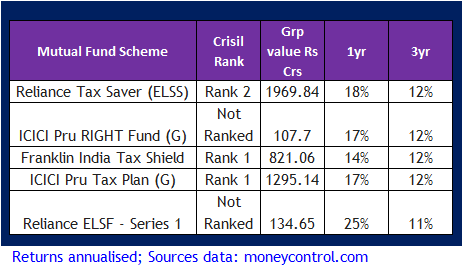Taxes and Mutual Funds
Post on: 9 Апрель, 2015 No Comment

Taxes and Mutual Funds
RANGA CHAND
From Ranga Chand’s Getting Started with Mutual Funds
Even if you are strictly an RRSP investor, you should read this section. It will give you some idea of what taxes you could be paying if your funds were not in a tax shelter. It may also give you additional incentive to put as much as possible into your RRSP while you can (who knows when the federal government will revise the rules?). Of course, having your money in an RRSP doesn’t let you off the tax hook for ever. They get you when you eventually withdraw your funds.
After deducting expenses, mutual fund companies pass on all income to unitholders annually. This means unitholders must pay the taxes due on all income earned on mutual funds held outside of an RRSP. This includes all interest, dividends, and capital gains. The fund company pays taxes on the management fees charged, loads, and any other fees they receive as income. Any invest
ment income you receive is subject to tax at your marginal tax rate (the tax rate payable on the last dollar you earn), although dividends and capital gains receive preferential treatment.
Interest income received from mutual funds is subject to tax at your marginal rate and receives no preferential tax treatment. This means that if your marginal tax bracket is 43%, you will pay taxes of $43 for every $100 of interest income you receive.
Dividend income. Although Canadian corporations have already paid taxes on their earnings before paying dividends to your mutual find, you must still declare these dividends for tax purposes. By claiming the dividend tax credit, however, you will reduce the amount of tax payable. This is accomplished by first grossing up your dividend by 25%, then multiplying the result by 13.33%. Let’s assume you receive $2,000 in dividend income:
$2,000 x 125% = $2,500.00
$2,500 x 13.33% = $333.25
Your dividend tax credit in this case would be $333.25, and that would be the amount claimed when calculating your federal tax payable.
Capital gains can be made either by selling units in a fund, and getting back more money than you originally paid, or by receiving a capital gains distribution from the fund itself. The amount subject to tax can be reduced by adding any charges, such as a front-end load, to your purchase price and subtracting any expenses incurred, such as redemption fees, from the sale price before calculating the amount of tax owed. A capital loss — when you sell units in a mutual fund for less than you paid — can also be used to reduce any capital gains. Otherwise, 75% of your capital gains are added to your base income and taxed accordingly. This means that out of every $1,000 in capital gains earned, you get to keep $250 tax free. The remaining $750 will be taxed at your marginal tax rate.
The actual amount of tax paid by an individual will vary, of course, depending on the type of income earned, his or her base income, and the province they live in.
Common Tax Errors
Many investors have the mistaken notion that by reinvesting distributions they avoid paying tax. Whether you reinvest all distributions or receive a cheque in the mail, you will still have to pay tax on them. Also, while switching from one fund to another within a group of funds has become quite commonplace, many investors don’t realize the tax implications. When you move money between funds, you are selling units in one fund and buying units in another. Revenue Canada will expect you to pay taxes on any gains. Moreover, if it is near the end of the year and you are thinking of buying units of a fund, it is important to ask when the next distribution will take place. Suppose you buy units on December 12 and the fund makes a distribution at year’s end. You are responsible for paying taxes on the distribution, even though you have been a unitholder in the fund for less than a month.
Finally, for tax purposes, it is especially important to keep accurate records. To do this, keep all fund company statements and written confirmations of each transaction in a safe place.
Key Points to Remember
- Interest income receives no special treatment.
- Reinvested distributions are subject to tax.
- Check distribution dates before investing.
- Keep all mutual fund statements in a safe place.














